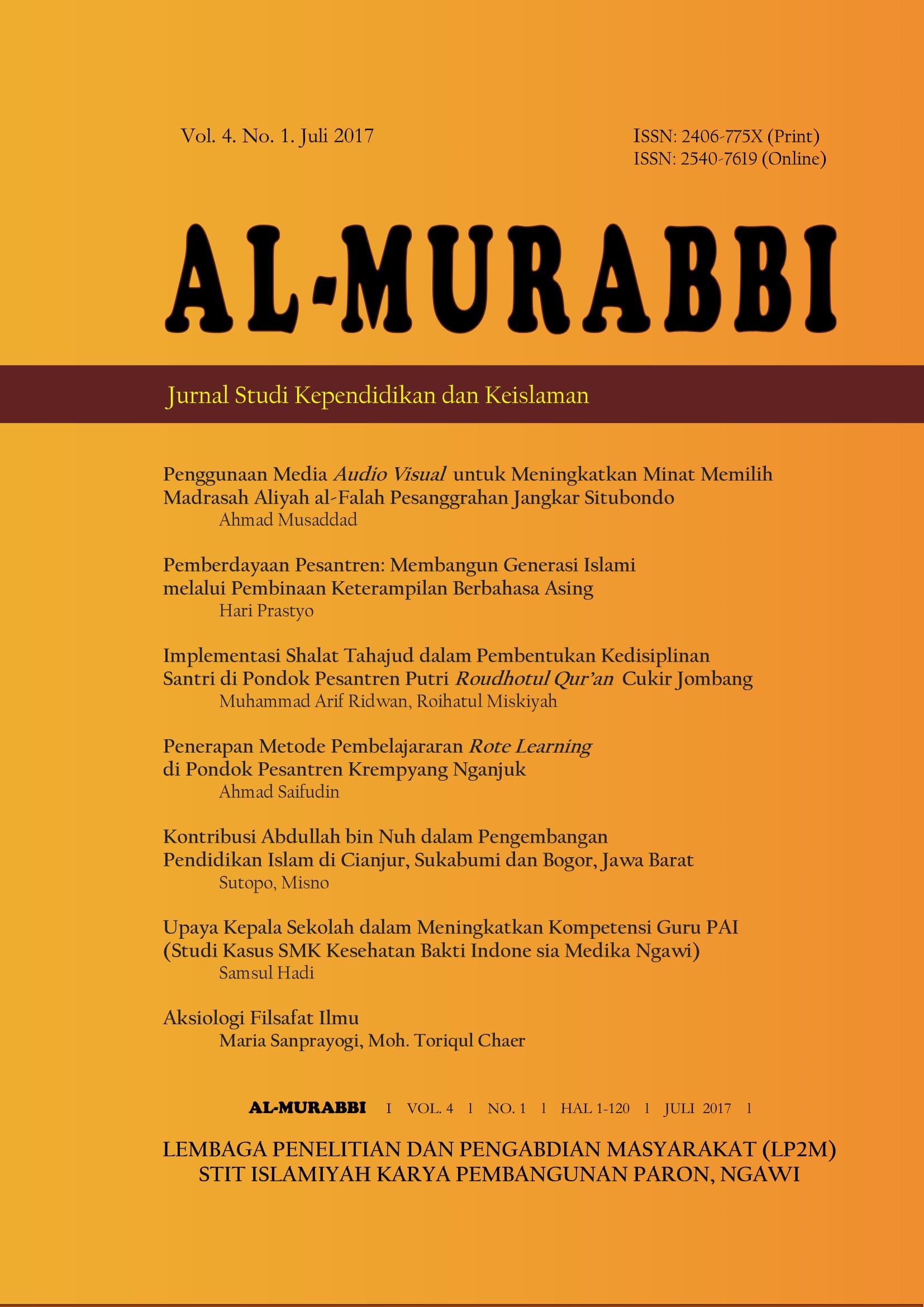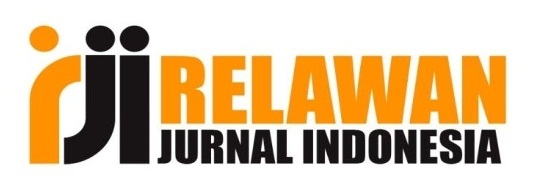Konsep Diri dan Komunikasi Interpersonal Anak TKI (Studi Konsep Diri dan Komunikasi Interpersonal Siswa SMA Karya Pembangunan Paron Ngawi Tahun Ajaran 2015/2016)
Abstract
Abstract: The concept of self is an individual's knowledge about himself and affect his relationship with others. Through the concept of human beings learn to understand yourself and others that affect the individual's ability in interpersonal relationship. Individuals perceive or assess itself will seem obvious from all his behavior, in other words the person's behavior will be in accordance with the way individuals perceive and judge for himself. This article aims to describe the concept of self and interpersonal communication at high school student Karya Pembangunan Paron, Ngawi who comes from a family of TKI, academic year 2015/2016. The subject amounts to 4 students by using qualitative research phenomenological-methods. The research found that; (a) the subject matter also shows a less passionate and excited about in terms of development and the attainment of self because it felt did not have adequate capability to achieve the ideal expectations; (b) the communication is done subject by parents who live in the House (father/mother) went well for the subject who lives the same House. For subjects who do not live the same House stated their communication less smoothly; (c) indirect communication Patterns done the subject with his parents is not effective because it felt the messages carried not optimal. In addition because of limited time, communication is done indirectly could not capture the gesture and expression of the caller so that less satisfied.
Keywords: High School Students, TKI, Concepts Of Self, Interpersonal Communication
Downloads
References
Arikunto, Suharsimi. Prosedur Penelitian Suatu Pendekatan Praktek, Jakarta: Rineka Cipta, 2002
As’aril, Muhajir, As’aril. Ilmu Pendidikan Perspektif Kontekstual. Jogjakarta: Ar-Ruzz Media, 2011
Gunarsa, Singgih Dirga, Psikologi Praktis : Anak, Remaja dan Keluarga. Jakarta: Gunung Mulia, 2001
Harjana, Agus M. Komunikasi Intrapersonal dan Interpersonal. Yogyakarta: Kanisius, 2003
Hurlock, E, B. Psikologi Perkembangan; Suatu Pendekatan Sepanjang Rentang Kehidupan. Alih bahasa: Istiwidayanti & Sijabat, Max R. Jakarta: Penerbit Erlangga, 2004
Kartadinata, Sunaryo. Kerangka Kerja Bimbingan dan Konseling dalam Pendidikan, Pendekatan Ekologis untuk Pendidikan. Bandung: IKIP Bandung, 2000
Moeloeng, Lexy. Metodologi Penelitian Kualitatif. Bandung: PT. Remaja Rosdakarya, 2004
Nasution, S. Metode Research. Bandung: Jemmars, 1996
Rakhmat, Jalaluddin, Rekayasa Sosial-Reformasi, Revolusi, atau Manusia Besar?. Bandung: Penerbit Rosda Karya, 2007
Rakhmat, Jalaluddin. Psikologi Komunikasi. Bandung : Remaja, 2005
Santrock, J. W. Tennager. Jilid 1. Edisi 11. New York : McGraw Hill, 2017
Sudjana, Nana dan Daeng Arifin. Cara Belajar Siswa Aktif dalam Proses Belajar Mengajar. Bandung : Sinar Baru, 1988
Sukmadinata, Nana Syaodih. Metodologi Penelitian Pendidikan. Bandung: PT. Remaja Rosdakarya, 2005
Thoha, M. Chabib. Teknik Evaluasi pendidikan. Jakarta: PT. Raja Grafindo Persada, 1996
Yin R., Cas Study Research: Design And Method. London: Sage Publications, Ltd. 1984
Copyright (c) 2017 AL-MURABBI: Jurnal Studi Kependidikan dan Keislaman

This work is licensed under a Creative Commons Attribution-ShareAlike 4.0 International License.











